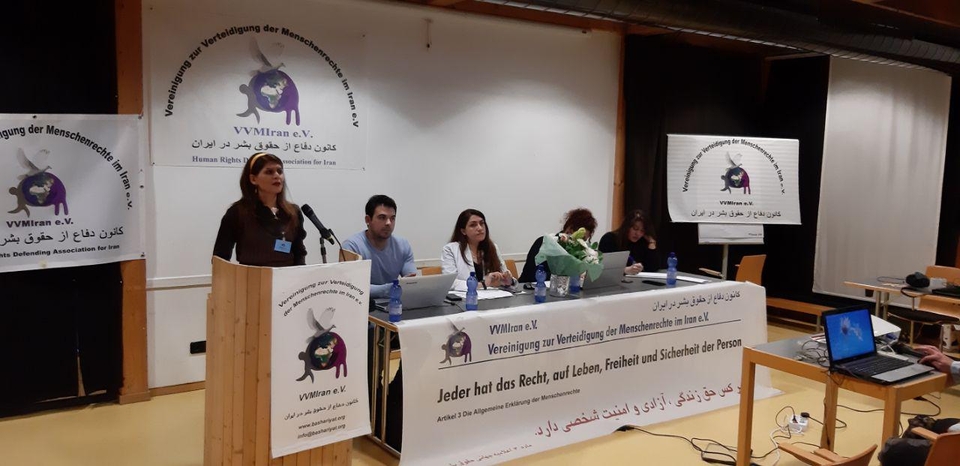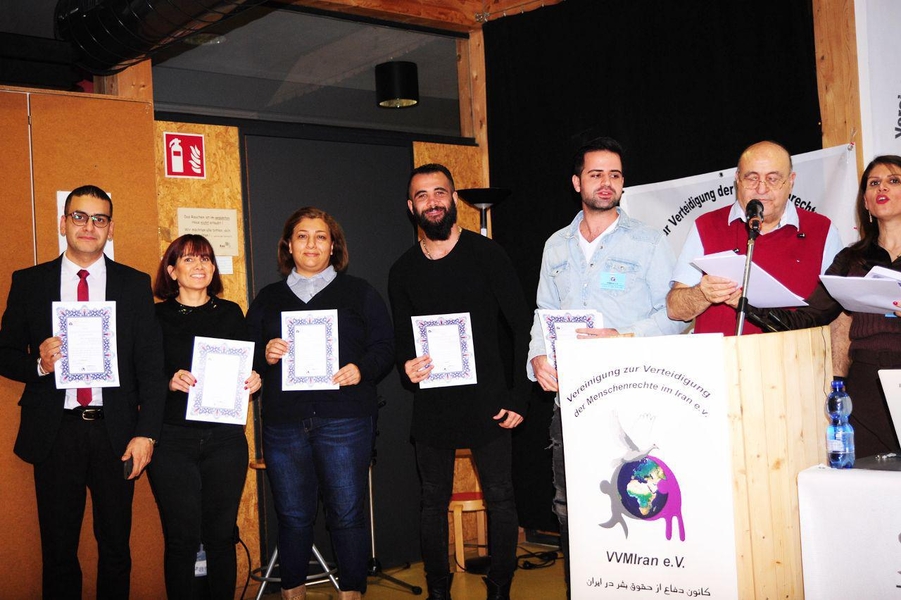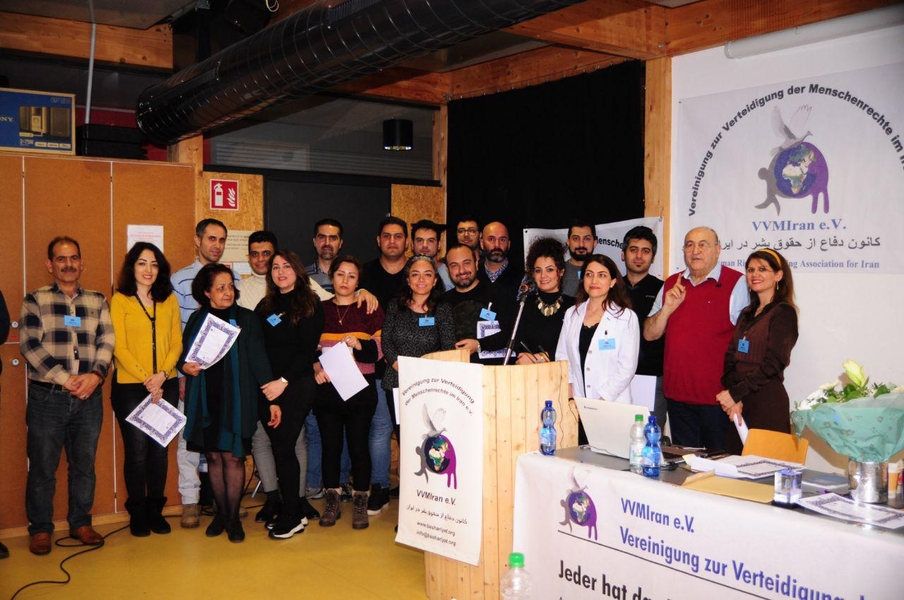Imprisoned rights activist Narges Mohammadi’s medical illnesses have reached a critical stage and require immediate attention, her husband Taghi Rahmani told the International Campaign for Human Rights in Iran.
Mohammadi, who has a history of severe health problems, was transferred from Evin Prison to Taleghani hospital in Tehran on August 2, 2015, because of neurological paralysis. After eight hours of preliminary medical observations, they took her back to prison, even though the doctors insisted she needed to be seen by a specialist, according to Rahmani.
“Her most urgent and most important request is that she be put under the supervision of a specialist physician. That’s what we have asked and the Prosecutor has apparently agreed to it, but no action has been taken yet,” Mohammadi’s husband told the Campaign from his current residence in France.
Mohammadi, a member of the Defenders of Human Rights Center, now banned in Iran, was arrested on May 5, 2015, ostensibly to continue serving a six-year prison sentence dating from a 2011 that she had been unable to serve because of her severe illness. That 2011 ruling was based on charges of “assembly and collusion against national security,” “membership in the Defenders of Human Rights Center,” and “propaganda against the state.”
The prominent activist’s return to prison can only be explained as a reflection of the authorities’ displeasure with her continued human rights activism in Iran.
Rahmani said when Mohammadi was brought to prison from the hospital on Sunday, her sister visited her during visitor’s hour and noticed that she was slurring her words and had difficulty speaking, “which are clear signs of neurological paralysis.”
“Narges’ case is in the hands of the Intelligence Ministry and the Judiciary. They are fully aware of her illness. The medical examiner of Zanjan stated in 2012 that her illness becomes worse in closed, tense, conditions….Her illness will get worse and reach a dangerous stage if she is not put under the care of a medical specialist,” Rahmani said.
“The Judiciary is responsible for protecting her life. Narges’ sentence was not gradual death. Even though we disagree with her [six-year] sentence, it should be carried out under conditions that do not lead to her death,” he added.











